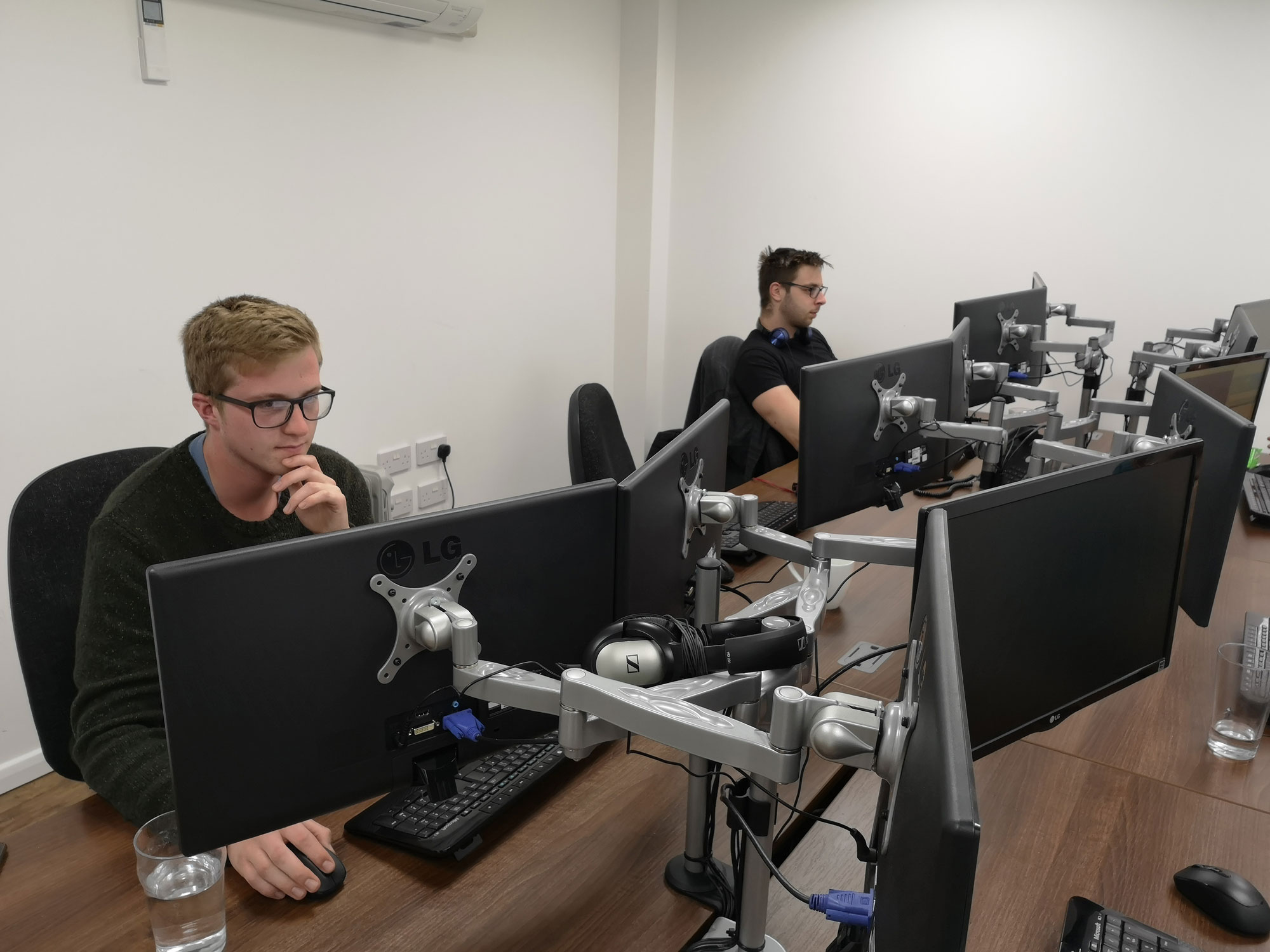
As a small-medium web design, IT support and digital marketing business based in East Anglia, Netmatters Ltd has big ideas. In 2020 the organisation achieved a Princess Royal Training Award for its delivery of in-house technical training.
Netmatters
Year awarded: 2020
Region: East Anglia
Size: 50-249 employees
Sector: Technology
new technically qualified employees needed each year
people undertaken training programme
£ savings made by bringing the training inhouse
%
success rate for training
The business realised that there was a skills gap in the region when it struggled to recruit trained developers so it decided to establish its own programme, training recruits with the skills needed and at the same time providing vital opportunities in the region.
Netmatters Project Manager, Tessa Woodrow explains: “We identified that there are capable people locally who cannot make the jump from periods of unemployment or an unsatisfying role to securing a job in technology. We are providing the opportunity to get the first step on the ladder towards a meaningful role and at the same time increase the number of quality developers in our industry.”
In 2017 the business established its training programme to fulfil the recruitment shortfall it was facing. Following its first intake Netmatters realised that the model provided a scalable and sustainable route to ensure a continuous pipeline of talent in the region. The programme evolved into the Scion Coalition Scheme with other companies providing funds to increase the number of people being trained.
Netmatters needed to recruit four technically-qualified employees per year. By 2020 it had trained 32 people – many of whom were previously unemployed, inactive or were young people not in education, employment or training. Thirteen of these were employed directly with Netmatters and another 18 got roles as web developers elsewhere resulting in an impressive 97% success rate for the scheme.
When the pandemic hit, Netmatters – like most other businesses – needed to change how it worked and the business moved its training wholly online. Interestingly, attendance to the training increased and Tessa equates this to the fact that people were previously travelling for up to an hour every day to attend the training; the online approach has removed this barrier. In addition Netmatters has also seen an increase in people applying for the scheme, especially from some of the sectors hardest hit from the pandemic such as retail and hospitality.
Following the success of gaining the Princess Royal Training Award, Netmatters was contacted by a local Job Centre enquiring if the business was able to scale up the Scheme further targeting other regions. With the training moving online, this became possible and recruits are now undertaking the training from across ten counties.
Tessa explains that the training is tailored to a recruit’s own interests alongside the skills required for the role meaning that each trainee has a bespoke path leading to the role they want. By providing this unique approach, Netmatters has also been able to tailor the training for specific roles; a no-brainer for companies who can use the training programme to get the exact bespoke skill-sets they need without having to pay expensive recruitment costs. These businesses also have the peace of mind that their new recruit will be able to deliver from day one.

Netmatters equates a £30,000 saving to the business with bringing their training in-house thus reducing recruitment costs whilst at the same time investing in the recruits has led to a reduced staff turnover.
Tessa thinks that a lot can be learned from Netmatters’ approach. She says: “Organisations often recruit for junior roles and part of the specification is 2 years’ experience. If businesses were open to hiring people earlier and training them they can hire on a ‘good fit’ for their business which in my opinion is invaluable and makes much more sense than hiring on skill-set and trying to make them fit.”
There is much that can be shared and learnt from this small-medium web development and digital agency, which is certainly punching above its weight with its forward-thinking and altruistic approach to training and recruitment.

0 Comments